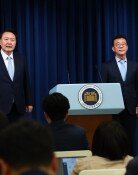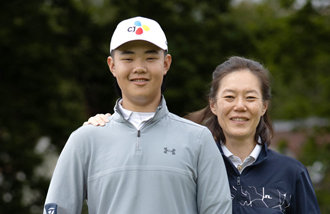Seoul should make quick decision on THAAD deployment
Seoul should make quick decision on THAAD deployment
Posted June. 06, 2016 07:31,
Updated June. 06, 2016 07:45
At the Asia Security Summit, known also as the Shangri-La Dialogue, U.S. Defence Secretary Ashton Carter mentioned his country’s alliance with Japan, Australia, the Philippines and partnerships with India, Vietnam and Singapore, saying the U.S. has been contributing to the diplomacy, economy and security in the Asia-Pacific region with the allies. However, he lumped South Korea into an expression of the trilateral partnership among the U.S., Japan and the South in countering North Korean provocations. It is not far-fetched to interpret Ashton’s failure to separately mention the South Korea-U.S. alliance as an expression of Washington’s complaint about Seoul’s low-profile attitude toward Beijing.
The Shangri-La Dialogue has rekindled the issue of the proposed deployment of the Terminal High Altitude Area Defense (THAAD) system in the South. Embarking on a trip to Singapore, the U.S. defense chief told journalists that he could discuss the THAAD issue with his South Korean counterpart. A senior U.S. official accompanying Carter said there would be a public announcement on the THAAD deployment soon. However, Han denied that the THAAD issue was an agenda at the international security forum. In addition, Seoul’s defense ministry said that the South Korean and U.S. defense chiefs did not discuss the issue – a reiteration of the previous incidents, in which Washington indicated the THAAD deployment, only to face Seoul’s hurried denial.
In a question-and-answer session after his speech at the forum, Han said, “[South Korea] undoubtedly has the intention to deploy the Terminal High Altitude Area Defense.” At a meeting with his Chinese counterpart, who expressed a firm opposition to the THAAD deployment, Han reportedly countered the argument, saying, “The discussion of THAAD deployment originated in a move to defend against North Korea's nuclear and missile threats. THAAD would only be aimed at North Korea's nuclear and missile threats that are becoming more sophisticated.” However, Sun reiterated China’s opposition to the U.S. deployment of THAAD to South Korea, showing that Han’s persuasion did not work.
At a time when North Korea is posing a threat to the South’s survival, the THAAD deployment is an inevitable choice. Still, it seems that the United States and China are using the issues of North Korean nuclear development and the THAAD deployment as a card to play against each other ahead of the bilateral Strategic & Economic Dialogue. If China opposes the THAAD deployment despite its reluctance in stopping the North’s nuclear development or imposing sanctions on Pyongyang, it is not clear that Beijing does not care about Seoul’s security. If the THAAD deployment is inevitable in securing our survival, we have no reason to reject an intelligence-sharing pact with Japan, not to mention accepting the missile defense system. If Seoul looks too indecisive about the issue due to China, it would only prompt Beijing to assume a more high-handed attitude.
한기흥기자 eligius@donga.com






